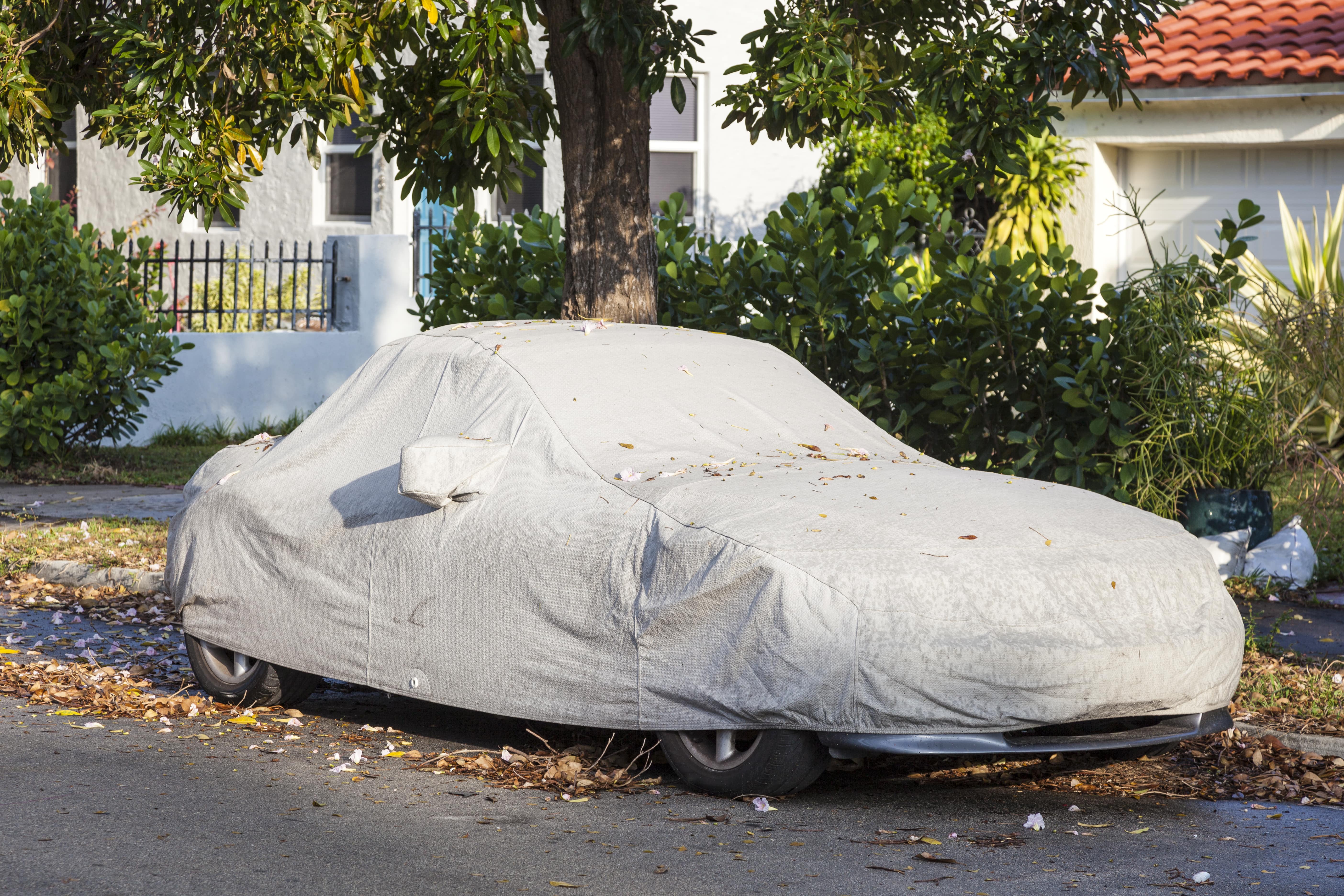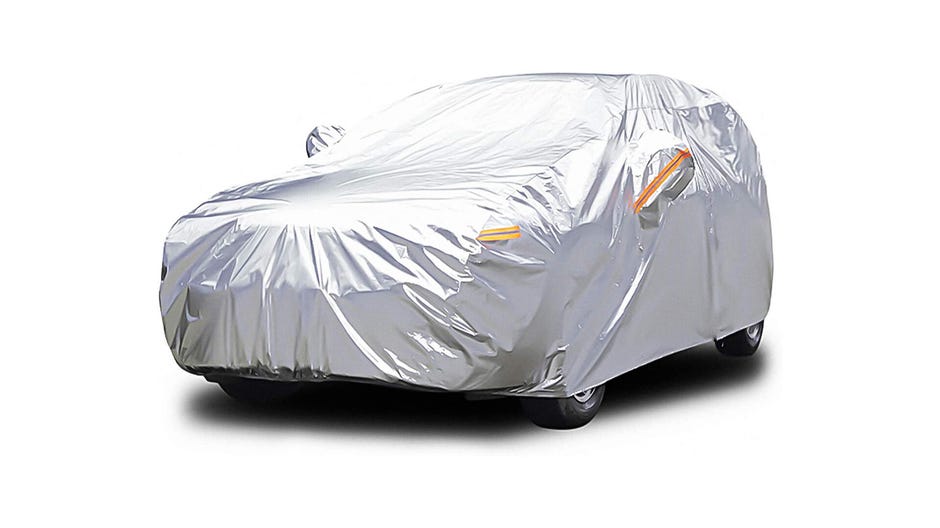The best car cover material depends on the climate and whether the vehicle is parked indoors or outdoors. In warm climates, a breathable fabric such as cotton or polyester is ideal to prevent heat buildup and condensation under the cover. In cooler climates, a waterproof and windproof material like nylon or vinyl will help keep the car’s interior dry and protected from the elements.
There are a few different materials that can be used for car covers, each with its own set of benefits. Here is a quick rundown of the most popular options to help you choose the best one for your needs:
Polyester: Polyester is a synthetic fabric that is lightweight and breathable, making it a good choice for cars that are stored in humid or hot climates.
It is also relatively inexpensive and easy to find. However, polyester is not as durable as some other options and can tear easily.
Cotton: Cotton is another natural fiber option that is also Breathable and lightweight.
However, it tends to be more expensive than polyester and can shrink when wet.
Nylon: Nylon is a synthetic fabric that is very strong and durable, making it ideal for car covers that will see a lot of use. It is also water-resistant, so it’s a good choice if you live in an area with frequent rainstorms.
However, nylon can be more expensive than polyester or cotton.
Vinyl: Vinyl is a synthetic material that offers excellent durability and weather resistance.
Which Material is Best for Car Cover Taffeta Or Polyester
If you are in the market for a car cover, you may be wondering which material is best. Both taffeta and polyester have their own advantages and disadvantages. Here is a look at both materials to help you decide which one is right for your needs.
Taffeta:
Advantages: Taffeta is a lightweight fabric that is easy to handle. It breathes well, so it will not trap moisture underneath the cover.
Taffeta also resists wrinkles and creases, so it will look good for longer periods of time.
Disadvantages: Taffeta can tear easily and is not as durable as some other fabrics. It also does not provide as much UV protection as some other materials.
Polyester:
Advantages: Polyester is a strong fabric that can withstand more wear and tear than taffeta. It also provides better UV protection from the sun’s rays.
Polyester is also less likely to fade over time than taffeta.
Disadvantages: Polyester is heavier than taffeta, so it can be more difficult to handle. It also does not breathe as well, so moisture can get trapped underneath the cover.
Best Outdoor Car Cover Material
When it comes to protecting your car from the elements, you want to make sure you choose the best possible material. There are a few different options on the market, but we think the best outdoor car cover material is polyester.
Here’s why: Polyester is a synthetic fabric that is resistant to both water and UV rays.
It will keep your car dry in even the heaviest of rains, and it won’t fade or crack in sunlight. Plus, it’s breathable so moisture won’t get trapped underneath.
Another great option is PVC-coated polyester.
This material has all of the same benefits as regular polyester, but it also offers protection against scratches and minor abrasions.
No matter which material you choose, make sure you get a cover that fits your car snugly. A loose cover can flutter in the wind and cause damage, so take your time measuring and choosing the right size.
Car Cover Material by the Yard
When you’re ready to buy a car cover, the first thing you need to decide is what kind of material you want. There are lots of different options out there, so it can be tough to choose. However, one option that might not have occurred to you is buying car cover material by the yard.
This can be a great way to get exactly the right material for your needs without spending a lot of money. Plus, it gives you the opportunity to customize the cover to your specific vehicle. Here’s what you need to know about buying car cover material by the yard.
The most important thing to keep in mind when choosing car cover material by the yard is that it needs to be durable. You don’t want something that will tear easily or fade in the sun. Look for materials that are specifically designed for car covers, such as polyester or PVC-coated polyester.
These materials will stand up well to weather and wear and tear.
Another thing to consider is how thick you want the material to be. The thicker it is, the more protection it will offer from things like UV rays and scratches.
Waterproof Car Cover Material
A car cover is an important investment for any vehicle owner. Not only does it protect your car from the elements, but it also helps keep it clean and free of debris. But what kind of material should you choose for your car cover?
There are many options on the market, so it’s important to know the pros and cons of each before making a decision.
One popular option is waterproof car covers. These are made from a variety of materials, including polyester, vinyl, and PVC.
Waterproof covers are great for protecting your car from rain, snow, and ice. They’re also good at repelling dust and dirt. However, they can be more expensive than other types of covers, and they’re not always as breathable, which can lead to condensation buildup underneath the cover.
Another option is a water-resistant car cover. These are usually made from nylon or polyethylene fibers. They’re less expensive than waterproof covers and still provide good protection against the elements.
However, they’re not completely impervious to water – so if you live in an area with heavy rains or snowfall, you may want to consider a different option.
Matty Material for Car Cover
If you’re looking for a car cover that will keep your vehicle protected from the elements, Matty Material is a great option. This durable, water-resistant material is designed to withstand sun, wind, and rain. It’s also breathable, so it won’t trap moisture underneath and cause mold or mildew to grow.
Matty Material is available in a variety of colors and patterns, so you can find one that matches your style. Best of all, it’s easy to clean – just hose it down with soap and water when it gets dirty.

Credit: www.carcovers.com
What Material is Best for Outdoor Car Cover?
There are a few things to consider when choosing an outdoor car cover material. The first is the climate. If you live in an area with harsh weather conditions, you’ll want to choose a material that can withstand high winds and heavy rain or snow.
Another thing to consider is how often you’ll be using the cover. If you only need it for occasional use, then a less durable material may be fine. However, if you plan on using it regularly, then a more durable material will be necessary.
Finally, consider your budget. There are many different materials available, so find one that fits both your needs and your budget.
What’S the Best Material for Car Covers?
There are a few different types of materials that can be used for car covers, each with their own advantages and disadvantages. The most common materials are polyester, vinyl, and cotton.
Polyester is the most popular material for car covers because it is lightweight, durable, and breathable.
It is also relatively inexpensive and easy to care for. However, polyester can fade in direct sunlight and is not as waterproof as some other materials.
Vinyl is another popular choice for car covers because it is very durable and waterproof.
It is also relatively inexpensive. However, vinyl can crack in cold weather and is not as breathable as some other materials.
Cotton is a less popular choice for car covers because it is not as durable or waterproof as some other materials.
However, cotton is very breathable and has a natural resistance to mold and mildew. Cotton car covers are also usually more expensive than those made from other materials.
What is the Best Car Cover for the Winter?
When it comes to protecting your car from the winter weather, there is no one-size-fits-all solution. The best car cover for the winter will depend on a number of factors, including where you live, what kind of car you have, and how often you drive.
If you live in an area with harsh winters, you’ll need a heavy-duty car cover that can stand up to snow, ice, and wind.
A thicker material like vinyl or canvas will offer the best protection against the elements. You’ll also want to choose a cover that’s specifically designed for your type of car. If you have a convertible, for example, you’ll need a different cover than if you have a sedan.
If you only drive occasionally during the winter months, or if your car is stored in a garage most of the time, then a lighter-weight cover may be all you need. A simple tarp or even an old blanket can provide enough protection to keep your car clean and dry when it’s not in use.
No matter what kind of car cover you choose, be sure to wash and wax your vehicle before putting the cover on.
What to Look for When Buying an Outdoor Car Cover?
When shopping for an outdoor car cover, it is important to consider the climate in which the vehicle will be stored. If the area experiences high humidity, then a waterproof cover is necessary. If the winters are harsh, then a thick, heavy-duty cover will be required to protect against snow and ice.
It is also important to choose a cover that is breathable, so that moisture can escape and prevent condensation from building up underneath. Finally, make sure to select a cover with UV protection in order to keep the paint job looking new for years to come.
✅ TOP 5 Best Car Covers [ 2023 Buyer's Guide ]
Conclusion
There are many different materials that can be used for car covers, but which one is the best? In this blog post, we will compare three popular options: polyester, cotton, and PVC.
Polyester is a synthetic fabric that is strong and durable.
It is resistant to water and UV rays, making it a good choice for protecting your car from the elements. However, polyester can be more expensive than other options.
Cotton is a natural fabric that breathes well, making it a good choice for hot weather.
It is also absorbent, so it can help protect your car from spills and stains. However, cotton is not as durable as other materials and may require more frequent cleaning.
PVC is a synthetic material that is lightweight and easy to clean.
It is also waterproof and UV resistant, making it a good choice for protecting your car from the elements. However, PVC can be more expensive than other options.
